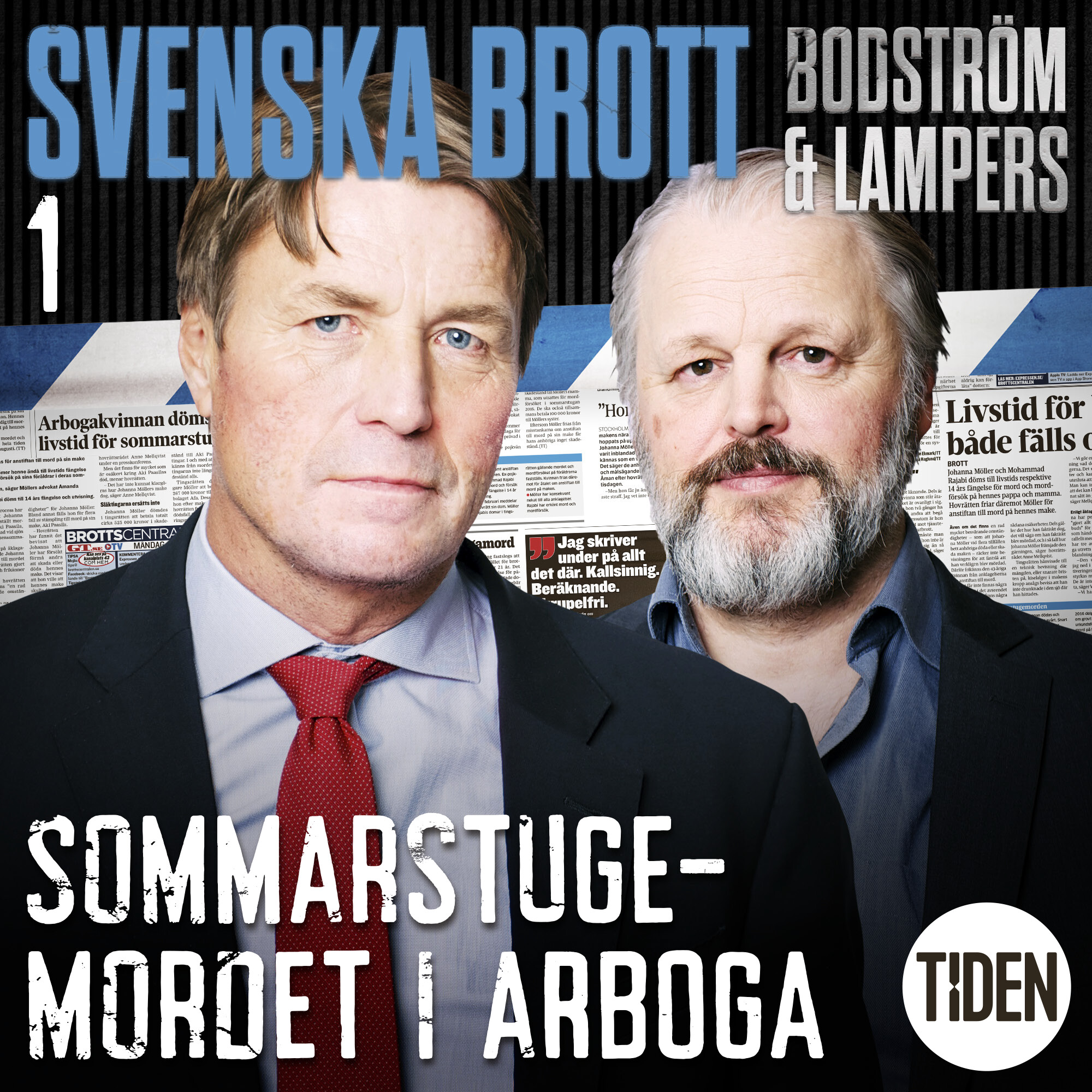Who is Thomas Bodström: Former Swedish Minister Of Justice And Leading Expert On Cybercrime?

Gry lär Thomas Bodström allt om gagballs (2019) - Source www.imdb.com
Editor's Notes: Thomas Bodström: Former Swedish Minister Of Justice And Leading Expert On Cybercrime have published today date.
After some analysis, digging information, made us put together this Thomas Bodström: Former Swedish Minister Of Justice And Leading Expert On Cybercrime guide to help target audience make the right decision.
| Thomas Bodström: Former Swedish Minister Of Justice And Leading Expert On Cybercrime |
|---|
| Thomas Bodström: Former Swedish Minister Of Justice And Leading Expert On Cybercrime |
| Thomas Bodström: Former Swedish Minister Of Justice And Leading Expert On Cybercrime |
Another paragraph about Thomas Bodström: Former Swedish Minister Of Justice And Leading Expert On Cybercrime.
FAQ
Find answers to frequently asked questions on cybercrime and its impact on individuals and organizations by Thomas Bodström: Former Swedish Minister Of Justice And Leading Expert On Cybercrime.
Sommarstugemordet i Arboga | Thomas Bodström | Ljudbok - Source www.norstedts.se
Question 1: What are the most common types of cybercrimes?
Answer: Cybercrimes come in various forms, including:
- Phishing scams
- Malware attacks
- Ransomware
- Identity theft
- Financial fraud
Question 2: How can individuals protect themselves from cybercrime?
Answer: To minimize the risk of becoming a victim of cybercrime, consider the following measures:
- Use strong and unique passwords for all online accounts
- Enable two-factor authentication
- Be cautious when clicking on links or opening attachments in emails
- Keep software and operating systems up to date
- Use a reputable antivirus program
Question 3: What are the legal consequences of committing cybercrimes?
Answer: Cybercrimes are taken seriously by law enforcement and can result in severe consequences. Penalties vary depending on the specific crime committed and the jurisdiction in which it occurs. Common punishments include:
- Fines
- Imprisonment
- Loss of electronic devices
- Damage to reputation
Question 4: How can organizations protect themselves from cyberattacks?
Answer: Organizations should implement a comprehensive cybersecurity strategy to protect themselves from cyberattacks. Key measures include:
- Conducting regular security audits
- Implementing firewalls and intrusion detection systems
- Educating employees on cybersecurity best practices
- Having a disaster recovery plan in place
- Working with cybersecurity experts
Question 5: What are the emerging trends in cybercrime?
Answer: Cybercriminals are constantly developing new techniques and exploiting emerging technologies. Some of the latest trends include:
- Increased use of artificial intelligence (AI)
- Attacks on cloud computing platforms
- Ransomware-as-a-service (RaaS)
- Cryptocurrency-based crimes
- Supply chain attacks
Question 6: What is the future of cybercrime?
Answer: As technology continues to advance, so too will the threat of cybercrime. It is crucial for individuals, organizations, and governments to stay vigilant and adapt to the evolving landscape of cyber threats. By working together, we can create a more secure cyberspace for all.
For more insights on cybercrime and its implications, refer to the original article by Thomas Bodström: Former Swedish Minister Of Justice And Leading Expert On Cybercrime.
Stay informed and protected in the digital age.
Tips to Prevent Cybercrime
Cybercrime is a growing threat to businesses and individuals alike. Former Swedish Minister of Justice and leading expert on cybercrime Thomas Bodström shares five practical tips to help you protect yourself from these malicious attacks.
Tip 1: Use strong passwords and change them regularly. Weak passwords can be easily cracked by hackers, so it is important to use strong passwords that are at least 12 characters long and contain a mix of upper and lower case letters, numbers, and symbols. You should also change your passwords regularly, especially if you think they may have been compromised.
Olof K Gustafsson om livet i häktet i Spanien - Source www.aftonbladet.se
Tip 2: Be careful about what you click on. Phishing scams are one of the most common ways for hackers to trick people into giving up their personal information. These scams typically involve emails or text messages that look like they are from legitimate companies or organizations. If you receive an email or text message that you are not expecting, do not click on any links or attachments. Instead, hover over the link to see where it really goes. If the link does not go to the website of the company or organization that sent the email or text message, do not click on it.
Tip 3: Keep your software up to date. Software updates often contain security patches that can help to protect your computer from hackers. It is important to install software updates as soon as possible after they are released.
Tip 4: Be careful about what you share online. Do not share personal information, such as your social security number, credit card number, or bank account number, online. You should also be careful about what you post on social media. Hackers can use information from your social media profiles to target you with phishing scams or other types of cyberattacks.
Tip 5: Back up your data regularly. In the event that your computer is hacked or infected with malware, you will be able to restore your data from your backup. You should back up your data to an external hard drive or to a cloud storage service.
By following these tips, you can help to protect yourself from cybercrime.
Thomas Bodström: Former Swedish Minister Of Justice And Leading Expert On Cybercrime
Known for his contributions to Swedish and international efforts in combating cybercrime, Thomas Bodström holds significant expertise and experience in the field.
- Former Swedish Minister of Justice
- Expert on Cybercrime
- Initiator of the European Cybercrime Convention
- Advocate for International Cooperation
- Author and Speaker on Cybercrime
- Advisor to Governments and Organizations
Bodström's multifaceted role encompasses both policymaking and practical implementation. As a former Minister of Justice, he played a key role in shaping Sweden's approach to cybercrime. His work as an expert has extended beyond national borders, with his contributions to the European Cybercrime Convention influential in harmonizing laws across Europe. Bodström's advocacy for international cooperation has fostered partnerships between countries in addressing the transnational nature of cyber threats. Through his writings and speaking engagements, he continues to raise awareness and educate on cybercrime. His advisory role to governments and organizations ensures that his expertise informs policy decisions and practical measures.
Thomas Bodström får toppjobb i Fifa - Source www.aftonbladet.se
Thomas Bodström: Former Swedish Minister Of Justice And Leading Expert On Cybercrime
Thomas Bodström's extensive experience in law enforcement and policymaking, coupled with his profound understanding of the digital landscape, has established him as a leading authority on cybercrime. His tenure as Sweden's Minister of Justice from 2000 to 2006 was marked by pivotal advancements in combating cyber threats, including the implementation of comprehensive legislation to address online fraud, hacking, and child exploitation.

Advokat Thomas Bodström: ”Jag har aldrig sett något liknande tidigare - Source www.aftonbladet.se
Bodström's expertise extends beyond legal frameworks; he possesses a deep-seated understanding of the technical aspects of cybercrime. This proficiency enables him to grasp the evolving tactics employed by cybercriminals and develop effective countermeasures. His research and analysis have contributed significantly to the development of international cybercrime prevention strategies.
The practical significance of understanding the connection between "Thomas Bodström: Former Swedish Minister Of Justice And Leading Expert On Cybercrime" lies in its implications for policymaking and law enforcement response to cyber threats. Bodström's insights have informed countless government initiatives and corporate cybersecurity measures, enhancing global efforts to mitigate the impact of cybercrime.
Conclusion
Thomas Bodström stands as a beacon of expertise in the realm of cybercrime prevention and response. His influence extends from shaping legislation to advising law enforcement agencies and corporations on safeguarding against digital threats. Bodström's leadership has been instrumental in raising awareness, developing effective countermeasures, and fostering international collaboration in the fight against cybercrime.
As cybercrime continues to evolve, Bodström's expertise remains invaluable. His forward-looking insights will undoubtedly shape future strategies and policies, ensuring that the challenges posed by cybercrime are met with a comprehensive and effective response.


